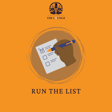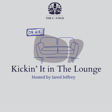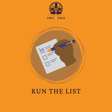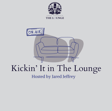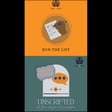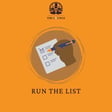Become a Creator today!Start creating today - Share your story with the world!
Start for free
00:00:00
00:00:01

Research As A Medical Student and Resident With Dr. Anita Lwanga
Join us as Dr. Alwdin talks about the importance of research as a medical student and resident with Dr. Anita Lwanga.
Thoughts on our discussions? Questions for our hosts? Email podcast@snma.org for a chance to be featured on the show!
Disclaimer: The opinion and views expressed on our podcast do not reflect the official stance of the Student National Medical Association.
Transcript
Introduction and Guest Overview
00:00:03
Speaker
What's going on, everybody? Welcome to a special episode of SMA Presents the Lounge. My name is Dr. Aldwin Somare, aka White Coat Poppy, aka Enriching Doc BX. And today we have here Dr. Anita Luwanga to talk about the importance of research projects in helping individuals match into residency, fellowship, and obtain academic jobs, as well as how to get involved in research as a medical student or resident.
00:00:29
Speaker
Dr. Anita Luwanga is an exercise physiologist, general internist, and geriatrician that works at the Cesca Chewan Health Region in Canada. Sorry if I butchered that. Sorry, Kendra, don't hate me. All the folks in Canada, I tried my best. She attended St. Matthew's University School of Medicine, did her internship and residency at Sinai in Chicago.
00:00:51
Speaker
and did a fellowship at the University of Illinois at Chicago. She helps her patients improve their health by optimizing their diet, exercise, and medications. Dr. Luanga's mission is to provide compassionate and holistic care to the community she serves. So without further ado, we are gracefully and excited to have you on this podcast, Dr. Luanga. Welcome, welcome, welcome. Thank you so much for having me.
00:01:19
Speaker
Thank you for being here and gracing us.
Dr. Luwanga's Career Path and Influences
00:01:21
Speaker
So let's backtrack a little bit and talk about your initial journey into medicine, becoming a physician, going through undergrad and med school and residency as well. Tell us a little bit about your history, your historic history.
00:01:37
Speaker
So growing up as a kid, as a competitive gymnast, and I was very much into sports, I also knew I wanted to pursue a career as a physician early on. So I chose to do my undergraduate in exercise and health physiology. And the information I learned is invaluable. We learn stuff that we don't necessarily learn as physicians, specifically with regards to nutrition and optimizing your exercise. And I still use a lot of that information today in terms of guiding my patients and even in terms of optimizing my own health.
00:02:06
Speaker
um thereafter as you mentioned um i uh actually i'm a you didn't mention this i'm a non-traditional student and i think a lot of people who are in your audience who are non-traditional students might find some encouragement from my story it actually took me some time i think it was about
00:02:22
Speaker
six years of undergrad before I got into med school. So after I finished my degree in exercise and health physiology, I started a degree in health studies focused on Indigenous or First Nations health in Canada. There are unfortunately a lot of health disparities for our Indigenous population and it's very important to be aware if you're going to be somebody who's on the health care system that their health care disparities
00:02:44
Speaker
No matter what country you are in for people who are marginalized or oppressed, primarily because of systemic racism, and as a health care provider you need to be an advocate for your patients, no matter what their background is. As you mentioned, I went to
Residency Experience and Learning from Diversity
00:02:58
Speaker
St. Matthew's University so the first two years were in Cayman Islands.
00:03:01
Speaker
And then the last two years were in Orlando, primarily through the Florida health care system. And I was also fortunate enough to do some rotations in Canada. So I got to see the differences in between the U.S. and the Canadian health care system. I think overall, there's a lot of similarities. The main differences I would highlight would just be who the insurance provider is, government versus government and multiple players in the U.S. In terms of my training with residency at Sinai in Chicago,
00:03:30
Speaker
signed as on the west side, so it serves patients primarily in the south and west sides of the city.
00:03:37
Speaker
And unfortunately, a lot of our patients have many healthcare challenges, many socioeconomic challenges. So it was an amazing opportunity. I learned so much from my attendings, but also so much from the patients. And I also learned a lot about myself with regards to how perhaps naive I was, but it was a great experience. And same with my fellowship. The fellowship was in partnership with University of Illinois and Jesse Brown VA.
00:04:06
Speaker
So I learned so much from my patients, primarily the veterans. They have so many curls of wisdom and just like, one, one story, I'll be very fast. I had a 90 year old patient and just the stories he would tell, I could tell he was like running circles mentally around other people. I'm like 90 years of experience. I'm like one, like you talk to him and he talks circles around you very politely, but it takes you like hours later. You're like, Oh, that's what he was saying. So.
00:04:35
Speaker
Like with age comes a lot of wisdom. And then I worked in upstate New York for about three and a half years prior to opening my own practice back in Western Canada. So you have played such a diverse array of roles from clinician to what we'll talk about later as a mentor as well. But how did you set up your clinical practice for many of us, you know, trying to reach that next level of that pinnacle of excellence and being independent practitioners?
Business of Medicine and Mentorship's Role
00:05:03
Speaker
It's something that is commonly avoided when we're in medical school, when we're in pre-meds. They don't teach you about the business side, the negotiation side, the overhead side, the logistics of hiring the appropriate people. So what has that experience been like and how did you navigate that? I love that question. That is a great question. It shows that you're thinking ahead.
00:05:27
Speaker
Yeah, so you're right. You're not taught business skills at all in med school or in residency. So as a student, I'd recommend focusing primarily on what you need to learn and same with residency. I didn't necessarily plan out my career or have the intention of working independently.
00:05:43
Speaker
As I said, I worked in upstate New York, but I worked for a hospitalist company. So that was a great opportunity to learn about the business of medicine, to learn a little bit about the politics of medicine while somebody's holding your hand. So, for example, the company I worked with helped us with billing, helped us with applying for insurance, helped us with all of our licensure. And I learned about the business aspect of medicine and took notes, also learned so much about efficiency.
00:06:07
Speaker
And then when it came time to open my own practice, I actually joined a business school called Entre Empty Business School. There's a lady named Dr. Una, if you have time to Google her. And she really makes it simple because it seems very intimidating and overwhelming. But she's like, you're a physician. You do presentations every day. Like one time you talk to a patient, that's one presentation. One note you write, that's the equivalent of a blog article. So she really gives you confidence in terms of knowing I've done hard things, I can do hard things.
00:06:35
Speaker
and even just the practical things of like setting up your you know your schedule to make sure you're getting all the revenue generating more important business activities done so it's a work in progress to be honest i've only been in practice for one year but having a network or people you can rely on to teach you
00:06:53
Speaker
This is what is going to happen. This is what you need to watch out for is invaluable. So I'd recommend for residents and students, if possible, work for somebody for a little while, take notes, save your money. Don't buy a new car. Don't buy a new house. Don't buy nothing. Just save your money. So if you want to open your own practice, you're going to have like a cushion to do that. And on top of that, if things don't work out, you're not necessarily tied down. You can move very easily.
00:07:20
Speaker
And you can set yourself up to succeed and know that it is possible. You can do it. They tell us in this world of corporate medicine, you guys are only one-trick ponies. All you can do is take care of patients. That's not true. We save lives. And saving life is harder than running a business. Running a business is not easy. But you can run a code. You can run a business.
00:07:43
Speaker
Yeah, shout out to Dr. Una, I've had the privilege to meet her and, you know, speak to her and be inspired and encouraged. So I love that. She's, you know, one of the people that you look up to as well and she's inspired you to do some amazing things.
00:07:59
Speaker
Outside of obviously your clinical roles, now we venture over into mentorship. And I think in my opinion, mentorship is the most important thing that you need to facilitate success in medicine without, as you mentioned, support, encouragement. The people that surround you, you are equal to the six people you spend the most time with. So if you want to be that physician entrepreneur, if you want to be
00:08:21
Speaker
you know, that physician that works in the community and health policy, et cetera, et cetera, whatever roles may have you, you need to be, you need to engender yourself to be in those positions. So for you, what is the importance of being a physician mentor and how does that fulfill you as a person? Oh, that is a great question. And I see you've been hanging around wise people cause you already know you're the average of the six people you hang out with. That is great. Um, to be honest, if I look back on myself as a resident or a student, I was shy and I shouldn't have been so shy.
00:08:53
Speaker
to other people. But for me now in my position, training the next generation or sharing my knowledge with the next generation, I really find it fulfilling when I teach somebody something and I can see that information I've given them, gives them confidence to go out and take care of a patient.
00:09:10
Speaker
or gives them confidence to share what they've learned with another student. And to me that is really powerful because it's like a part of our legacy and it's a part of ensuring other people have open doors and don't have to struggle as much as we did when we were in that position. So I think what you're doing is very wise looking up to other people. So in the student's position, I would say, don't be shy.
00:09:34
Speaker
ask questions there's no such thing as a stupid question and if somebody makes you feel stupid find somebody else because you know it means that they're just not your person but your people are out there people who are cheering you on people who want to see you when people will open doors for you
00:09:50
Speaker
are there. And the way it happened for me, doors were open for me. So I am so grateful, but at the same time, so cognizant of how important it is to open doors for other people. One example is my interview for residency in Chicago, like I never thought I'd be in Chicago, like I'm from a small town.
00:10:11
Speaker
Chicago was like so overwhelming but because one friend asked for an interview for me and the funny thing is they actually told me oh we don't take non-US citizens so it was like a Hail Mary but somehow ended up pre-matching at that program but if my friend did not ask for an interview for me I wouldn't be there and I wouldn't have the trajectory that I have so because that happened to me I want to help other people as well. I love that I love that story too because
00:10:40
Speaker
In the world today, in our society, as adults, we're told that, oh, your GPA is too low, your USMLE score is too low, or you're going to a lower ranked school, you're not going to be able to match in this and that
Challenges in Medicine: Perseverance and Advice
00:10:54
Speaker
field. No, you will be able to do whatever you put your mind to, and your mind is the most capable possession.
00:10:59
Speaker
that you have. And the fact that, you know, obviously you leverage your network, but also that you were committed to the fact that you were going to be internal medicine physician and, you know, et cetera, et cetera. You, you know, you boggle down and you made it through and you made it work no matter what anybody had to say. So I just want to commend you and celebrate you for that because people don't really recognize that they just see, Oh yeah, you made it. No, behind every physician, there is a story of perseverance and resilience. And I think that we have to continuously highlight that so that people
00:11:29
Speaker
Don't over glamorize the field. Yes, you're going to work hard, but also there are beautiful outcomes that come from this work. So for you, no problem. For you, what are some tips? And I wish I had this, you know, early on, because the game is not being given. We know how it is. You come into the game and you move in a certain type of way, but I feel like it's so important when you get into the field of medicine. Medicines are very conservative.
00:11:54
Speaker
and very stringent kind of culture at this point in time. Maybe it may change in the future. But what are some of the most important keys to academic and professional success for medical trainees that you would advise?
00:12:07
Speaker
As a medical student, I think one of the most important things, I would say, first of all, is be true to yourself. Looking back on myself, and I think you touched on something, you're right, medicine is very hierarchical and also very conservative, but there is also room to be true to yourself despite, you know, fitting into the box. So for example, for me, I felt like I had to have like, my hair's pressed straight and I'm like,
00:12:35
Speaker
So I was struggling in this Florida heat trying to press my hair and the nurses would be like, honey, it's time for, you know, a touch up. I'm like, no, it's different humidity.
00:12:44
Speaker
So I wish I'd had the boldest to wear my hair natural. I don't think it would have made a difference by the time I went to my residency interview, but I think I would have spent less time straightening my hair, something stupid like that, or even the clothes I selected, I was selecting very boring colors. Okay, yeah, you know, like, Banana Republic, that's cool, but maybe I could have been a little bit, you know, more true to myself, rather than trying to waste so much time and energy to minimize myself. So I think if you want to,
00:13:11
Speaker
have energy and excitement. Don't minimize yourself. It's okay to know your audience and know when I can be more of myself with these people and I can be quieter and observe, which is okay with these people, but don't minimize yourself because at the end of the day, when you go home, you're the one who has to look yourself in the mirror. And if you do not feel like you're being your true self,
00:13:38
Speaker
It ends up breaking you down from the beginning and the beginning of the journey. So be true to yourself, number one. And number two, don't compare yourself to other people. And this kind of relates to being true to yourself. We're taught even from the beginning, you're competing against so and so for the best boardmarks.
00:13:55
Speaker
I think we really need to flip our mindset because the real world of medicine is that we're a team. We have a patient who is admitted for a heart attack. The ER doctors there, they play their role. The ER nurse plays their role. The hospitalist who's admitting plays their role. The cardiologist plays their role. The ER doctor doesn't do everything. No, we're a team. So I think if we can start with that mentality, even if everyone around you is competitive, find one or two people and do things such as
00:14:25
Speaker
say, splitting the study material. Like one thing I found is that sometimes you get so tired just reading and reading.
00:14:32
Speaker
read to each other, take turns and be like, okay, I'm going to review this material and read it to you. So you're still getting that information, but you also have that camaraderie and you're hanging out with your friends, but you're still studying, you're still getting your goals accomplished. So have that collaboration mindset. And then the third thing, talking to what you're talking about, network. I'm just learning recently the power of networking and the power of making friends. If you're an introvert or you're a more quiet person, it could be more challenging.
00:15:02
Speaker
But you can network with other introverts. They actually don't know like, okay, it doesn't make you not interested, you're just conserving your energy. And the power of networking is that it can accelerate your process. So for example, I'll give you an example as a student. As a math student, being like a Caribbean math student, do you know about these shopping sounds?
00:15:24
Speaker
I didn't know what to study for the shopping sounds but I used to go to a cafe and there was a girl from I think University of Florida and she's like oh no no no no that's not what we read for the shopping sound we read this and this and I was like oh and then you buy this shopping sound and you like study on this nbme exam so by networking people will tell you like just do this don't waste so much energy and you go so much further
00:15:48
Speaker
So if you look at it that way and also approach networking and how can I also serve you. So it's a win-win situation rather than I'm just going to make friends with her so she can tell me, you know, no, you could like, hey, hey, I see you here all the time. Let's study together. Let's meet you tomorrow. I'm going to buy you a coffee. And as you also give of yourself, people will give to you. And over time, like you will create relationships that make the hard times so much easier.
00:16:14
Speaker
So those are the three things. Again, be true to yourself. Don't compare yourself and network. Yeah, it's all you got to do is ask, you know, shoot your shot, you know, and put yourself in a position where those opportunities come in front of you and take advantage when they do
Importance and Types of Medical Research
00:16:30
Speaker
come in. You've obviously clearly accomplished that.
00:16:33
Speaker
Now, in regards to the world of research, you know, for many medical students and young physicians, it is a way to leverage yourself and learn about what medicine entails outside of the clinical realm, but also a grand away in which you can implement medicine. What are your thoughts on why is research so critically important for medical students and residents and the like?
00:16:58
Speaker
That's an excellent question. And I know when a lot of people do research, they're like, ugh. I have enough work. I have enough pressure on myself. Don't tell me to do anything boring. The thing is, I think you have to start with knowing why do medical schools want you to do research? Why do residency programs want you to do research? And what is the long-term impact on your career? So starting at the med school level, when you are applying for residency programs,
00:17:28
Speaker
one of the ACGME requirements is that you're involved in scholarly activity. I didn't know that until I was in residency, but what that means is things such as participating in morning report, but the more high caliber thing would be publishing a paper. So your residency program has to report to ACGME. These residents participated in XYZ projects and having
00:17:53
Speaker
a published research paper is something very objective and it makes the program look good. So if you can think this is what they want, how can I give them what they want? So as a med student going for an interview, you can say, I have participated in XYZ research project and they will ask you about it on the interview. So something you're interested in, it does not have to be like benchmark research, you know, looking at the latest rat DNA, blah, blah, blah, blah.
00:18:20
Speaker
No, no, no, no. You can pick something that you're interested in and if you can have like a conversation about it showing that you're interested, show you understand the process, then they're already gonna say, okay, this one, we're gonna give them more points. They've already participated in research. And in my case, I actually had not published anything by the time I went to residency. My first project was actually looking at, I think back pain and say non-nursing caregivers working in nursing homes.
00:18:48
Speaker
So that is within the health realm. I was able to talk about how we started the project, how we collected the data. So that shows initiative. So they know, okay, this person is going to take initiative on projects. We don't have to like, you know, push her to get something done.
00:19:02
Speaker
And I also had a second project that I started prior to residency, but I had not yet published. So I brought it forward and actually published it in residency. And my residency program's name is listed there as the institution that supported the research. So that's there forever. And it was actually published in like a high caliber journal, like I think the American Journal of Cardiology.
00:19:22
Speaker
So it makes my program look good, even though they certainly have the resources to manpower to support that project. But another thing that another way that I use this is that I had a mentor in residency who was a cardiologist. So I said, Hey, can you help me with this? And he was shocked. He was shocked, but so happy because he's like, Oh, even my fellows haven't started cardiology projects. He's like, this is the first person that has invited me instead of
00:19:57
Speaker
You're making your mentor look good. I didn't do cardiology, but I knew if I wanted a letter of recommendation, he will remember me. He will remember emailing me like every other week. He will remember editing my paper, and he will have very objective and specific things to say about me for a letter of recommendation. So you can look at it on multiple levels. Like, even as a student, if you publish, your dean has to write a dean's letter. They're going to say, this student did XYZ, and they'll be like, this student is
00:20:13
Speaker
the first person begging me for a project.
00:20:22
Speaker
They took initiative, they did this, that's different, that differentiates you from your other colleagues. And same with residency, like if you want your program director to write your letter, they'll say, this resident did XYZ project, and then same with a job. There's two different categories when it comes to actually working in academia.
00:20:40
Speaker
Or sorry as an attending there's academic jobs and then private practice jobs, if you want an academic job. Guess what those universities rankings are partially based on how much research they produce if you are applied with no research projects and another person.
00:20:56
Speaker
even if they maybe didn't go to the same caliber residency program as you did, if they have a couple of projects, they'll be like, oh, this one is going to make us look good. So they might need more towards somebody who they know is a sure bet. So if you look at it as in
00:21:12
Speaker
This is what they want. How can I show them that I'm going to be an asset to them? That makes it less painful. And then after that, choose something you're interested in. As I said, my first project was not necessarily medical, but I could talk about it. I could talk about the process intelligently so you could bring that. So just go ahead and find something you're interested in. And again, as you're saying, ask. Shoot your shot.
00:21:36
Speaker
That's 100% of shots you don't take. For me, I think the passion is critical. For me, I did research on mindfulness and meditation and African-Americans with the history of depression and anxiety. And I've always engaged in meditation and mindfulness all my personal time. So it was a great way to integrate my interest for mental health and also
00:21:56
Speaker
You know, with a certain thing that I implement in my daily life so yes the interest and passion will allow you to even publish even more because I find that many students they just jump into research is that oh yeah I just I need to be published, I need to do that.
00:22:09
Speaker
Hold on, sit down assess what are your interests and then formulate the network to the appropriate people to get that interest built upon and expanded upon so that you could be successful with the research because otherwise you're doing something that you may not necessarily like or you're hating it and it's like bro what's the point you're going to be less likely to complete it and stay dedicated and committed to it at the end of the day.
00:22:32
Speaker
Absolutely. Absolutely. I love that. Congratulations. That's very exciting and very like that's awesome that you chose your own project and you're very passionate about it. Oh, thank you. Appreciate that. So we've been talking about research and there are different forms of research and a lot of people unfortunately or fortunately don't know, but we're going to educate them through the lens of your eyes. But can you expand upon the different types of research and knowledge and skills and career benefits associated with each of them?
00:22:58
Speaker
Okay, so there's benchmark research, which is something that I have limited knowledge and limited experience on. But the way to get benchmark research, which is something that might not necessarily be done on humans, but will translate eventually into humans, would be say, if you happen to be in an academic setting already, ask around, ask your mentors if they're involved in any projects, and then you can get involved in that. And in terms of benchmark research, a lot of these projects will be, say, a part of
00:23:26
Speaker
one of the projects that a big research lab does. So in terms of your involvement, it might be difficult to see the project through to publication, but you might be saying named one of the people if you participate materially in the project. The research that I'm more familiar with is stuff that is more practical clinically. So if we'll start at the bottom, there'll be something such as a case report. This is in the house or under the umbrella of clinical research. So case reports are much easier to find,
00:23:56
Speaker
It's something that like a case you'd see when you're in the hospital that is extremely rare and say you're attending is like, wow, I've never seen this before. If you hear them say that, jump on it, be like, so what do you think about this? Why is it unique? Ask the fellows. And then as you do that, you can also offer and say, hey, I want to write a case report on this.
00:24:16
Speaker
If you can grab a fellow, they will love you because they're supposed to do research as well. And same with the resident. So this is where networking starts. If you want to make friends with that fellow, say they're a cardiology fellow, you want to be a cardiology fellow? Hey, hey, I'll start the case report on this and then get that pending on board and you can be the person who's leading it and you can be guided in terms of what is unique about it.
00:24:35
Speaker
And your mentors attending fellow resident and so forth would tell you, this is where this case report can be published. And same with case series. If it's similar cases that are very unique, that's a little bit higher level evidence than say a case report, because it's not just a one off or one thing that's unique. It's a couple of cases that are similar that are starting to form a story. And then in addition to that, we have things such as case control studies, retrospective analysis, or prospective analysis.
00:25:05
Speaker
Those are a little bit more involved. And in terms of those cases, you usually need to go through your ethics board. You may or may not need to do that for case reports, but you might say if it's prospective, you need to get the permission of
00:25:20
Speaker
the subjects say if it's in a clinical setting to use some of their information. It'll be more involved in terms of blinding the information and the process can be a lot longer. But if you have an idea or say your mentor who happens to be an attendee is working on a project, you can jump on those kind of projects. And that's like a little bit higher level than case series. Oftentimes prospective studies are based on things that are seen in case series.
00:25:45
Speaker
Thereafter, we would have randomized controlled trials. So the information that is found in, say, the case series or the prospective and retrospective, the level of evidence is stronger. But just because they find something in a randomized controlled trial, it doesn't mean it can be applied to humans right away. A higher level than that would be a meta-analysis.
00:26:06
Speaker
where they pull a bunch of randomized control trials, and they say, okay, we've looked at 10,000 patients over like 50 papers, 50 randomized control trials, and this is what they found. And then the interesting thing about what they find in meta-analysis, this is what they use to create clinical guidelines. So you're going to see these are the guidelines for the treatment of COPD, or these are the guidelines for the treatment of depression.
00:26:33
Speaker
a lot of that information is pulled from meta-analysis. So you can see when you're starting at a case report, over time people will build up on the information that you have started in that case report or say if it's something that you're passionate about and this is going to be your career. You might start
00:26:48
Speaker
doing a case report as a resident and keep on the same topic until by the time you're attending, you're doing randomized controlled trials or meta-analysis and you're pooling data other people have done on similar studies and then you are making the guidelines. So that's how this thing kind of goes from the beginning up until the end and we're applying it to patients. And then another type of clinical research that's very practical are quality improvement projects.
00:27:16
Speaker
So for example, if you work in a hospital, and I'll say use the topic of depression because you mentioned it. So say if we're going to look at, yeah, there's so much research to be done, but say we're going to look at triage times for patients who come in with suicidal ideation, they'd be noticing your hospital. Oh man, like patients are waiting a long time to be admitted to the inpatient site even.
00:27:40
Speaker
I want to do as an attendee, I want to do a project to improve our wait times for patients that come in with suicidal ideation. So you pull the data and then you could say compare data at other hospitals or national guidelines. And then you compare what's happening in your hospital compared to the guidelines you recommend or the national guidelines. And then you can say these are some things we're going to implement. That would be say your summary. Things we're going to implement to improve the quality of care for individuals that come in with suicidal ideation.
00:28:10
Speaker
And then you can publish it. There's certain journals that allow you to publish quality improvement reports alone. Yeah, so there's so much work to be done and so many ideas and you can make such a big difference no matter what your level of interest is, no matter what type of research you're interested in.
00:28:28
Speaker
You're bringing me back to the statistics days. And I was like retrospective, prospective, all these equations were coming into my mind because it was very comprehensive. And I definitely do appreciate that. What would you say to students who may not feel inspired to pursue academic research or feel like research is for them?
Beyond Traditional Research: Staying True to Self
00:28:47
Speaker
I think, again, going back to what I said, be true to yourself.
00:28:50
Speaker
If it's really not something you're interested in and you can't find a topic you're interested in, that's okay. I think everyone has something to give. So for example, you might be somebody who is more into the arts. Say if you have a gift for painting or for photography, go ahead and pursue that. Be true to yourself and go ahead and talk about the projects you're interested in. As physicians, especially as med students, we feel like, oh, I have to be all about medicine. I can't see no other interests. Say if you're into music, you know,
00:29:20
Speaker
No, don't force yourself to do research if you can't find something. Maybe you can eventually do a research project on the effects of music on mood. And then you can, you know, as you work as an attendee, you can like bring some project where they bring music into the inpatient psych unit, and you see how it improves people's mood. Okay, but I mean, don't, don't force it if it's not there. Do what, you know, really fits with you. And don't be shy about talking about what really interests you.
00:29:47
Speaker
So I think it's okay, be true to yourself and just enjoy yourself. Don't force yourself to be somebody you're not.
00:29:54
Speaker
Thanks for the idea. I'm gonna definitely use that music one. If there's no other ones out there, I'm definitely using the music. I'm gonna see what Tupac Dustin versus Beethoven, 69. And we'll see what goes on. But I think one of the important things, especially if you're at a small institution like Mines, is finding the opportunity to get into research. How do you recommend medical trainees go about identifying their interest projects and or finding research mentors?
00:30:24
Speaker
I think be curious, be curious and ask people. Sometimes you think something is like so unique and it's not. And don't be shy to ask and attending, like be straight and say like, do you think this can make a case report? And if you know, that's okay. Just keep asking, keep asking. And then they might catch up and be like, oh, this person was to publish and they might actually give you a case report just because they noticed your interest. And I, another thing I remember is always feeling like so dejected if somebody says no.
00:30:52
Speaker
Don't take it personally, maybe gamify it. So you can say, I have a three month window to get a project done. I'm going to do two asks per day. Um, whether the ask is asking a resident and asking an attending or asking a fellow or emailing somebody and then just like give yourself a reward if you hit like a certain benchmark so that that way you're not disappointed by not getting what you want. And the more you ask, the more likely you are to hit your answer. But yeah, there's other ways of doing it and just don't take it personally.
00:31:23
Speaker
Do you have any parting words of wisdom or encouragement for our listeners?
Self-Care for Medical Professionals
00:31:29
Speaker
That's a great question. I think the best thing is go back to the basics. The things our moms and our grandmas told us that we're like, oh, why are you saying that? What I mean by that is take care of yourself. Make sure you get enough sleep.
00:31:47
Speaker
I was one of those people who actually got I think probably a decent amount of sleep during med school and it helps with retention of what you have learned. Things I wish I did better, I wish I ate better. I would just like write, you know how they tell you, put that granola bar in your bag, you're not going to get.
00:32:04
Speaker
Yeah, I wish I'd done something like take a protein shake like there's something that's more nutritious so you can say like that like protein powder put a little bit of like milk in there and then carry a little water bottle. So I wish I built a better eating habits early on is only now that I'm an attending and I've been attending for like three years that I'm like,
00:32:24
Speaker
Okay, I need to go back to the basics and take better care of myself, but I would have probably performed better if I was eating more frequent meals and taking better care of myself with regards to my meals. And another thing that I felt limited me was finances, even as a resident and fellow.
00:32:43
Speaker
I, I could have done better. I was like, you know, going to winners and buying coach shoes. And, you know, I'm like, I didn't need those. I didn't need like five pairs of coach shoes. I had to do with one pair of coach shoes and I shouldn't spend the money on like vegetables instead of granola bars, you know?
00:32:56
Speaker
So those small things like really invest in your nutrition, even if it costs you a little bit more money, like it'll pay dividends in terms of the quality of your health and the quality of the habits you have. And then the last one I'll say is exercise. It sounds so cliche and you're like, I don't have time to exercise. I just need to study. There's ways to be exercise. There's what are called HIIT workout, high interval intensity training workouts. You can find a workout video on YouTube. You don't even have to spend money. You do not have to leave your place.
00:33:25
Speaker
do a HIIT workout for 15 minutes and then get back to studying. So it actually improves circulation to your brain, you will sleep better, it will reduce your stress levels, it improves your mood, you will recall better. So just try to do some kind of workout like minimum three days per week, if you can fit like a small workout in five days per week if you're studying.
00:33:45
Speaker
Get audio, some kind of audio thing to listen to and walk. And walk while you're listening. So you're getting your studying in, you're getting lots of circulation to your brain, and you're also taking care of your body. So the basics, sleep well, eat well, exercise, and that will carry you very far.
00:34:02
Speaker
And in med school, you know, I would jog in place so I could get 10,000 steps and I would say my lectures out loud. And I would always want to get above 10,000 because I was always in competition with other people even outside of medicine. So that was like, I saw my grade just once I started doing it and I saw my weight.
00:34:20
Speaker
go right down, you know, cause you know how it is that freshman 25 turned to 50 in medical school, it doubled. So, but we made that work, but I agree. And then getting to sleep, sleep hygiene is so important for consolidation of thought and everything going on. So it's so many little things that we discredit, you know, in this process of medicine, but we tell our patients these same things, but we don't necessarily do those things to ourselves, right? Going to therapy, you know, taking a walk, meditating, exercising,
00:34:49
Speaker
even really well, because if what you're ingesting is negative, then your mind is going to be negative and you won't be able to accomplish your goals at the end of the day. Absolutely. I love that. I wish I could rewind myself back in time and be your friend and be like, okay, this is the best thing I should do that too. It's nice to have people doing that because you also influence the people around you to be more healthy.
00:35:13
Speaker
Yeah, you know how it is. Podcast University, as Dr. Una says, you gotta be mobile and take advantage. So that's what I do when I walk in those things.
00:35:24
Speaker
Unfortunately, we, you know, you was laying down some great knowledge and I love, you know, your passion about research. I love the fact that, you know, you really, you know, you've implemented so many critical things as a physician that many people need to do going through this field. And it's exciting to see you on the other side, creating this excellence in your community in Canada and also, you know, reaching out to your patients and the like.
Contact and Mentorship Opportunities
00:35:47
Speaker
But before we go, we would love for you to
00:35:49
Speaker
lay down a law on how people can get in touch with you, where they can find you in all platforms. Hope you got it ready. I hope you got it ready. Got your pen and paper ready, audience.
00:36:01
Speaker
Well, linked in, it's Anita, Luwanga, L-W-A-N-G-A. On YouTube, I'm not as active there, but it's Dr. Luwanga, all small letters. You can just type it in and you'll find my videos and you can message me. I'm more active on Instagram. My Instagram handle is at LuwangaMD.
00:36:21
Speaker
I'm also on Twitter. I think that is LuwankaMD. Correct me if I'm wrong. I'm not on Twitter that much either. Those are the platforms. And I think TikTok, I have not been as active. That will be continued dot, dot, dot. We will see. But I'm also Dr. Luwanka on Twitter. So IG will probably be the best way. But for whatever level you're at, med student, pre-med, early career attending fellow,
00:36:48
Speaker
If you have any questions, reach out to me and I'm willing to share my knowledge. Definitely. Thank you again for coming on. Make sure you reach out to us. She got gems, tools, and tips for you to be an incredible physician, mentor, researcher, whatever the case may be. If you're aspiring for the top of the top, make sure you reach out to her. Because again, you are who you surround yourself with. So we appreciate you. We are grateful for you to be here. And I'm excited to see adventures that you continue to embrace in your future.
00:37:15
Speaker
Thank you. Thank you. And I'm so excited for your future as well. Please keep in touch. Definitely. Definitely.
